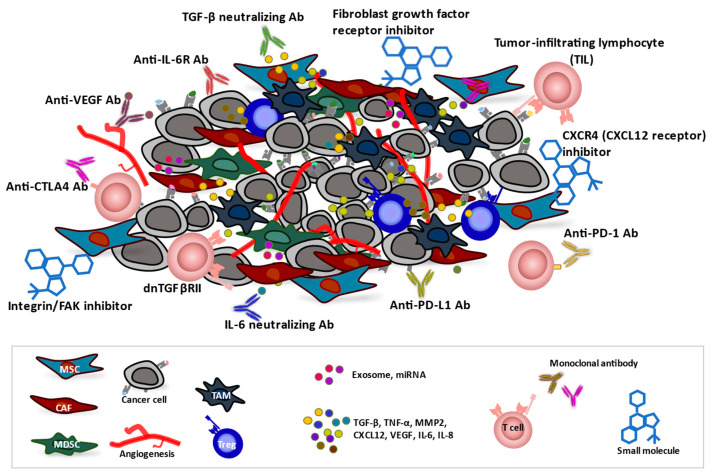Figure 3.
The tumor microenvironment (TME) and anticancer therapeutic approaches. Cancer-associated fibroblasts (CAFs), tumor-associated macrophages (TAMs), myeloid-derived suppressor cells (MDSCs), and mesenchymal stromal cells (MSCs) contribute to generation of a TME that supports the growth of tumor cells as well as renders them poorly immunogenic and resistant to therapies. Infiltrated or induced regulatory T cells (Tregs) in the TME also have a strong immunosuppressive function. CAF-dependent TGF-β signaling induces remodeling of tumor tissue and may promote angiogenesis. CAF-derived factors, including TGF-β, TNF-α, MMP2, CXCL12, VEGF, IL-6, and IL-8, promote the invasion of cancer cells into surrounding tissue, neutrophil recruitment, and angiogenesis. Therapeutic agents, including monoclonal antibodies (Abs), small molecules, and genetically engineered T cells, can influence the TME and promote antitumor immune responses and thereby inhibit tumor growth and survival.

